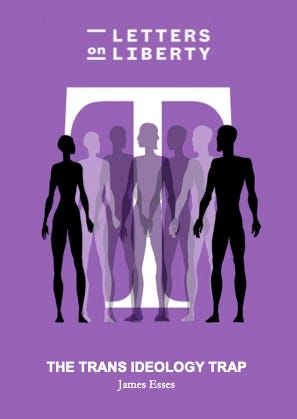The trans teen trend
Video and audio - As the Census asks about gender identity, how is gender ideology influencing children?
For the first time ever, the UK Census asked citizens the question: ‘Is the gender you identify with the same as your sex registered at birth?’ The results, which were published this week, found that 262,000 people had responded ‘no’, and about 0.2 per cent of the population in England and Wales registering as ‘transgender’.
While this might seem like a relatively small number to many, discussion about transgender rights, spaces and law relating to changing gender has dominated the news agenda for some time. Debates about the conflict between women’s rights and trans rights with regards to women-only spaces have demanded public attention, and the question of whether you ‘believe’ that, for example, trans women are women, has been thrown at politicians, celebrities and world-famous authors. What’s more, right now in Scotland there are huge debates after the Scottish Parliament voted to allow 16 and 17 year olds to ‘self-identify’ and change their legal gender.
Back in October 2022, at the Battle of Ideas festival, we decided to hold a debate that stepped back from the contemporary discussion of adult questions of identity (the Census records data from people over the age of 16) to look at the effect the trans discussion is having on children.
An increasing number of children - particularly teenage girls - are coming out as ‘trans’. There are those who argue that this increase in young people seeking to change their identity is simply demonstrative of the fact that we are living in a more open and tolerant society. They argue that stigma within the medical profession and in wider society had previously prevented trans individuals from accessing the help they needed, and that medical interventions simply enable children to embrace who they feel they really are on the inside.
On the other hand, increasing numbers of professionals hold deep concerns over this sharp rise. They point to the fact that large numbers of these patients are being affirmed down a medical pathway, often culminating in irreversible medication or surgery. They also argue that gender dysphoria is a mental-health condition, prone to social contagion (much like OCD or anorexia), and should be treated as such. Rather than pills or surgery, they argue that therapy, investigation and psychological help is the best course of action for the vast majority of patients. Indeed, the Cass Review, headed up by Dr Hilary Cass, argued that a ‘lack of consensus and open discussion about the nature of gender dysphoria’ had meant that there was a similar failing in an ‘appropriate clinical response’. As a result of the review, the NHS was forced to close the Tavistock Centre – the largest provider of transgender services in England – which had become a focus for criticism.
With the help of speakers including Jennie Bristow, James Esses, Katy Jon Went, Helen Joyce and chair Claire Fox, we asked our audience to go beyond their personal views on the issue of transitioning, and ask whether there is a bigger question as to why so many young people suddenly seem to want to change their identity? Has an increase in discussion about gender encouraged a faddish approach to trans ideology, or merely liberated children who previously felt trapped? Should we celebrate the fact that our children can be whoever they want to be? And perhaps more importantly, does enabling this freedom have to entail such drastic change?
You can watch the The trans teen trend: a case of social contagion? thanks to the citizen TV channel and charity Worldwrite for filming this debate at the Battle of Ideas festival in Church House, Westminster on the 15th and 16th of October 2022.
SPEAKERS:
Jennie Bristow - senior lecturer in sociology, Canterbury Christ Church University; author, The Corona Generation: coming of age in a crisis and Growing up in Lockdown
James Esses - barrister; social commentator; co-founder, Thoughtful Therapists
Katy Jon Went - diversity and inclusion facilitator and educator, Human Library, Pick My Brain, GenderAgenda, Fifty Shades of Gender
Helen Joyce - director of advocacy, Sex Matters; author, TRANS: when ideology meets reality
CHAIR: Claire Fox - director, Academy of Ideas; independent peer, House of Lords; author, I STILL Find That Offensive!
In preparation for his involvement in our panel at the Battle of Ideas festival, we also asked the writer and barrister James Esses to author a Letter on Liberty on the issue of gender ideology and what implications it has for freedom.
In The Trans Ideology Trap, James argues that the debate around sex, gender identity and trans has, from the outset, been centred around freedoms. But, he says, instead of broadening the scope of personal liberty, gender ideology actually hinders it. He argues that a contemporary obsession with trans forces many to conform to an ideology they do not believe in, places people into rigid boxes from which they cannot escape, encourages children to take decisions that they may regret for the rest of their lives and detracts significantly from the rights and freedoms of others – particularly in terms of free speech. James argues that we need to make the distinction between supporting people with gender-identity issues, and conforming to a new and censorious gender ideology.
James’ Letter is available on our website - where you can also order a hard copy with original artwork by Jan Bowman, along with other Letters which look at the importance of liberty in different areas of social and political life.
To stay up-to-date on all Battle of Ideas festival announcements, and for more video, audio and other material from the Academy of Ideas, make sure you subscribe to our Substack - and if you can, help us keep fighting for freedom by becoming a paid subscriber.




